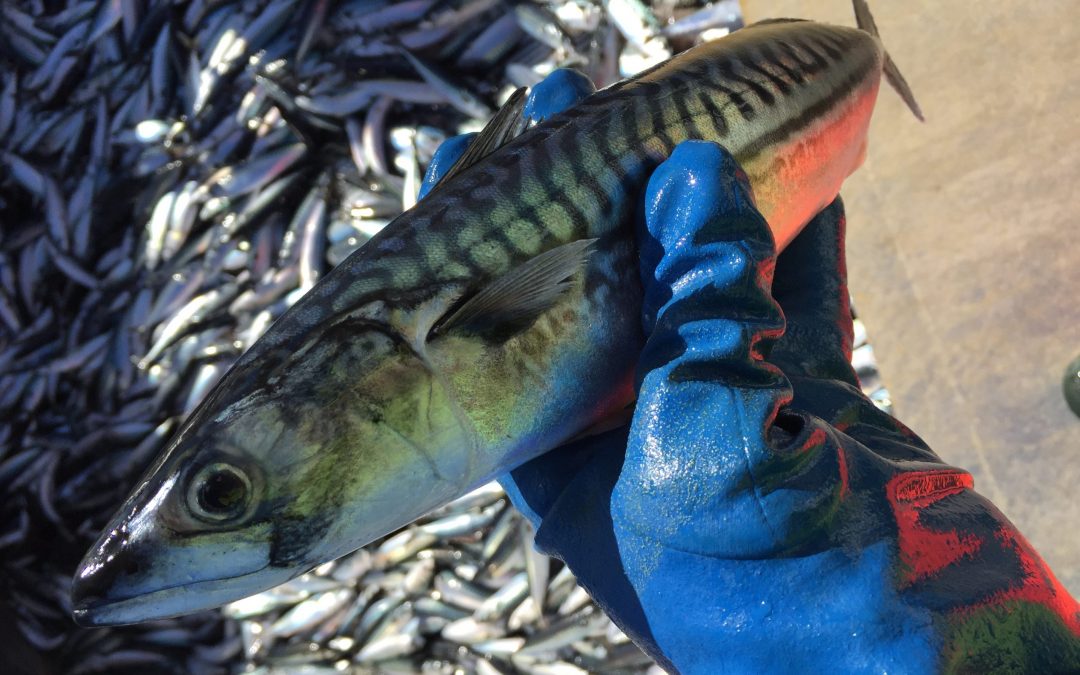Minister for Marine Charlie McConalogue did not avail of an offer by Denmark to resolve a long-running row with Ireland over mackerel which could have been worth almost 10 million euro to the Irish fleet over two years.
The offer in a letter from Danish Minister for Fisheries Jacob Jensen amounted to a transfer of 3,000 tonnes of mackerel to Ireland for two years “without prejudice” to a long-term solution to the dispute.
In the letter to McConalogue dated September 25th 2023, obtained by The Skipper , Jensen says the European Commission favoured Ireland and Denmark resolving their differences together.
The offer was not availed of by the minister. Instead, Ireland appears to have been outmanoeuvred at the December fisheries council into accepting a permanent deal in Denmark’s favour with a fraction of the share going to Ireland.
McConalogue hailed the December outcome as a “win-back” of quota worth 3 million euro to Killybegs annually, but Irish industry leaders say this is “misleading” and that they were “hoodwinked”.
The row dates back to Brexit, when Ireland lost substantial access to British waters, bearing the brunt among EU member states of transfer of prawn and mackerel quotas back to Britain.
This had a knock-on negative impact on annual EU-Norway deals on migratory stocks, principally mackerel .
In 2021, Denmark applied to the EU to transfer an “historical” mackerel quota formerly caught by its vessels in Norwegian waters into EU waters. This transfer would be at the expense of Ireland and other EU member states fishing from this “pot”.
Irish officials spotted the Danish move, amounting to 12,000 tonnes of mackerel valued then at around 17 million euro, and Denmark reacted angrily, with former Danish fisheries minister Rasmus Prehn accusing McConalogue of an “attempted coup”.
As attempts continued to resolve the row, the new Danish fisheries minister approached Ireland directly a good ten weeks before last December’s fisheries council.
It is understood the offer of 3,000 tonnes of fish for 2022 and 2023 would have been separate to Ireland’s annual mackerel allocation in Brussels.
The Danish minister said in his letter that the Commission had indicated it would “assist in implementing a solution identified by Denmark and Ireland in unison”.
He notes that as Britain develops its fisheries policy, “the EU is continuously suffering from Brexit”.
Irish Fish Processors and Exporters’ Association chief executive Brendan Byrne told The Skipper he was “shocked” as he had no knowledge of the Danish minister’s letter.
The industry has regular liaison meetings with McConalogue’s officials and “the letter was never mentioned”, he said.
“A transfer of 3,000 tonnes of mackerel from Denmark to us over two years would be worth over 9.7 million euro to the Irish industry, based on the current price for mackerel of 1620 euro a tonne,”Byrne calculated.
Irish South and West Fish Producers’ Organisation chief executive Patrick Murphy said McConalogue should “reflect on his position”, and said he had misled the Irish industry by “failing to tell us about this offer”.
“There are small inshore boats seeking to fish for mackerel by rod and line who are restricted to 400 tonnes a year – they could have done with some of this extra fish, as could larger boats down the coastline,”Murphy said.
“It appears that the minister just sought to ensure that the Donegal mackerel fleet had a sufficient share, preserving the status quota and failing to win back something that would have compensated us all for the Brexit losses,”Murphy said.
Asked to comment on the Danish offer, a Department of Agriculture, Food and Marine spokesman said “this issue centred on the allocation and distribution of an EU mackerel quota historically linked to an agreement with Norway, which had been unallocated since 2022”.
“Ireland did not accept Denmark’s proposal of a once-off transfer of mackerel quota in September 2023, as the solution proposed did not reflect the European Commission’s legal analysis which confirmed that this quota originated in the western waters mackerel quota area,”the spokesman said.
“The solution adopted by member states at December council, which involves a transfer of part of this quota to the western waters area, reflects the original source of this quota,”the spokesman said.
“The solution negotiated by Minister McConalogue therefore results in a permanent allocation of additional mackerel quota for the Irish fleet, rather than a once-off transfer of quota,”the spokesman said.


Recent Comments